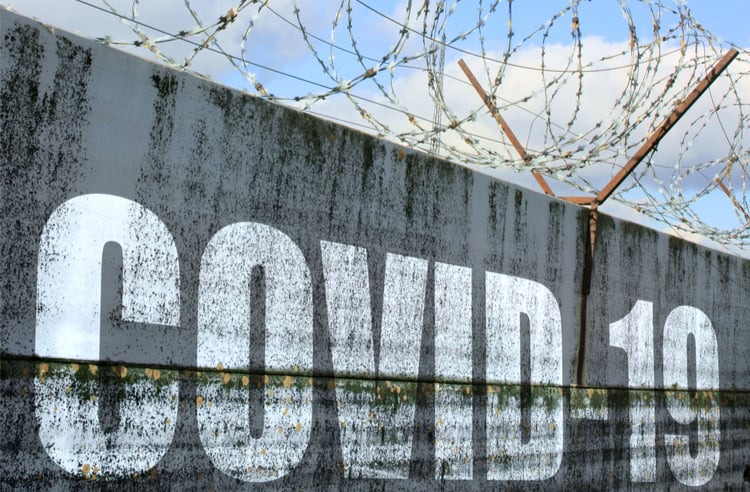State supreme court allows defendants to challenge prolonged detention caused by pandemic trial delays

Image from Shutterstock.com.
Defendants in New Jersey who face prolonged incarceration because of the suspension of jury trials can apply to reopen their detention hearings, the New Jersey Supreme Court ruled Thursday.
The state supreme court refused a blanket request to release certain defendants, made in a lawsuit by the state’s public defender office and the American Civil Liberties Union of New Jersey.
But the court said defendants can reapply to reopen detention hearing under a statute that sets out the requirements: A defendant must present information not known at the time of the initial hearing that has a material bearing on the right to release.
The state supreme court said new information can include the “unexpected duration of the pandemic coupled with the continued suspension of jury trials, with no clear end date for either.” Materiality will depend on individual circumstances, including:
• The length of detention, as well as the projected length of ongoing detention.
• Whether a defendant has been or will be in detention longer than the likely amount of time that the person would actually spend in jail if convicted.
• The existence and nature of a plea offer.
• A defendant’s health risks and whether they present a heightened risk if they contracts COVID-19.
Defendants have the right to reopen hearings if they have been detained at least six months and can make a preliminary showing that they satisfy at least one of the factors, the court said. Defendants charged with murder or facing a possible sentence of life in prison will likely not be eligible for new hearings, the court said.
Alexander Shalom, the ACLU of New Jersey’s director of supreme court advocacy, reacted to the decision in a statement.
“We’re gratified that the court recognized a desperate need to address the crisis in the criminal courts precipitated by the pandemic, in which people are forced to wait for trials in jail with no certainty of a timeline for having their cases heard,” Shalom said. “With this ruling, the court will ensure that people have some way to challenge their prolonged confinement in an unprecedented environment in which trials—the engine that propels the criminal system forward—have ground to a halt.”
Law360 covered the opinion.



